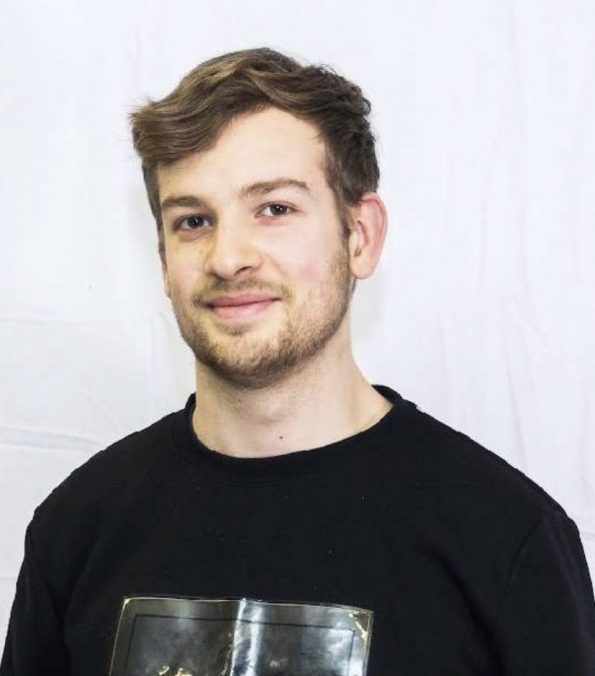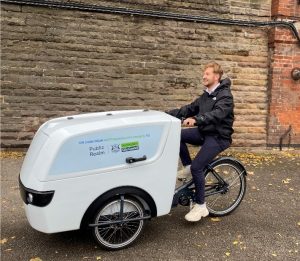
February 23, 2024, by Joe
Ben Thompson – ‘Transport Planning, Auditing and Mapping: Student Experiences and Reflections on a 10-Week Placement at the Nottingham City Council
The Social Sciences Placement Programme offers a unique opportunity to immerse yourself in a job sector of interest, gain and improve professional competencies, and give yourself an advantage in fiercely competitive internships and grad job application schemes. In the first term of my third year at university, I took part in the Social Sciences Placement Programme, and I was offered a position in the Cycling and Walking Team at the Nottingham City Council, as a student intern. Over the ten weeks that I completed my placement, I nurtured skills such as digital capabilities, professional communication and coordination. Not only has the placement offered me this experience and skills, it also offered a relaxing environment in which to get a flavour for office work.
I decided to complete a placement in the first term, as I thought it was a perfect time to obtain more experience; while it did require me to dedicate a day of my week toward non-university related work, the placement was finished in mid-December which meant that I had plenty of time to focus on exams for the period after the winter holidays. The placement scheme allows you to apply for two roles, and there were around 100 available for the autumn programme – therefore, there were plenty of roles that were within my interests. As well as this, you are likely to obtain a role, as there were around 200 applications submitted over the entire programme; therefore, there is no better environment to obtain important work experience and boost your CV.
Being stationed under a transport planner, I was able to appreciate the technical aspects of the job, gaining an appreciation of processes such as modelling which are integral to estimating the value of infrastructural change. However, the primary task I undertook throughout the placement involved conducting a cycle signage audit on a GIS application. This was essential for me to be able to leverage GIS in real life scenarios and appreciate spatial relationships, and complements my work with GIS in fictional settings, giving me a range of case studies and uses to draw upon if technical ability is required for jobs. Furthermore, the audit helped me to train my observational skills, which is applicable to a wide spectrum of jobs and is a way that building my digital capabilities can also promote other skills simultaneously. I felt like my role was valued within the term, as it informed the Cycling and Walking team’s long-term cycle infrastructure programme, by providing them with important feasibility-related data.
I had the opportunity to complete my work with another placement student, allowing me to train my coordination and teamwork skills. Despite not working at the same times, we had to split auditing work between us, which required regular email communication. I also organised a meeting between us, in which we delegated auditing work using a physical map of Nottingham, and coded a task list to ensure that we did not spent time doing work that another of us had completed.

Even if the subject matter of the placement is less in line with what you would like to do, you can nurture many soft skills throughout your time. I leveraged professional communication skills in everyday scenarios as well. Team members were reliant on me to conduct feasibility studies and research, but I had the independence to decide how to approach the tasks, as well as the order in which I completed them. This required me to communicate with the team to update them with my progress, striking a balance between undertaking the work independently, and getting their thoughts on the quality of my work.
I sat in on meetings within the Cycling and Walking team, getting an understanding of the council’s long-term transport strategy, and took part in site visits, such as the St Ann’s Well Road scheme, which allowed me to see how the team were instrumental in constantly updating Nottingham’s transport infrastructure. I also presented in front of the team about my experience of the internship, which provided me with a good environment to test my presentation skills, while encouraging reflection on the actions I had undertaken, and the skills I had learned throughout my placement. I think that my research informing a policy document on Cycle Parking was particularly useful for them, and allowed me to utilise my research skills that I have gained from my degree.
I think that the Placement Scheme has done a great deal to inform my next steps, and affirm my interests. I am looking at improving my capabilities in areas like public speaking and interviews using Magpie, which is an online-learning resource offered for free as part of the Careers and Employability service. I am also excited to take courses on Udemy in order to upskill my coding and digital abilities. When combined with the skills I have gained from my placement, I am confident in my ability to secure an internship for this summer.
My number one recommendation would be to get involved with the placement scheme, even if you think that the postings do not match your interests. It is an easy way to get experience in a sector and gain skills, without having to commit too much time – it is only one day a week for ten weeks! I suggest prior to applying, you should conduct a skills audit so you can see what skills you would like to improve; hopefully, this will give you an idea of what you want to get out of a placement, as well as what placements will be of most use to you. Even if you do not enjoy your placement, the skills that you gain will be invaluable for informing your future career path and making sure your skillset matches future job postings.
For more, there is a wealth of information on the Careers and Employability section of the Nottingham website, including more details about the placement scheme, and how to apply. If you decide to get involved, good luck!
No comments yet, fill out a comment to be the first

Leave a Reply